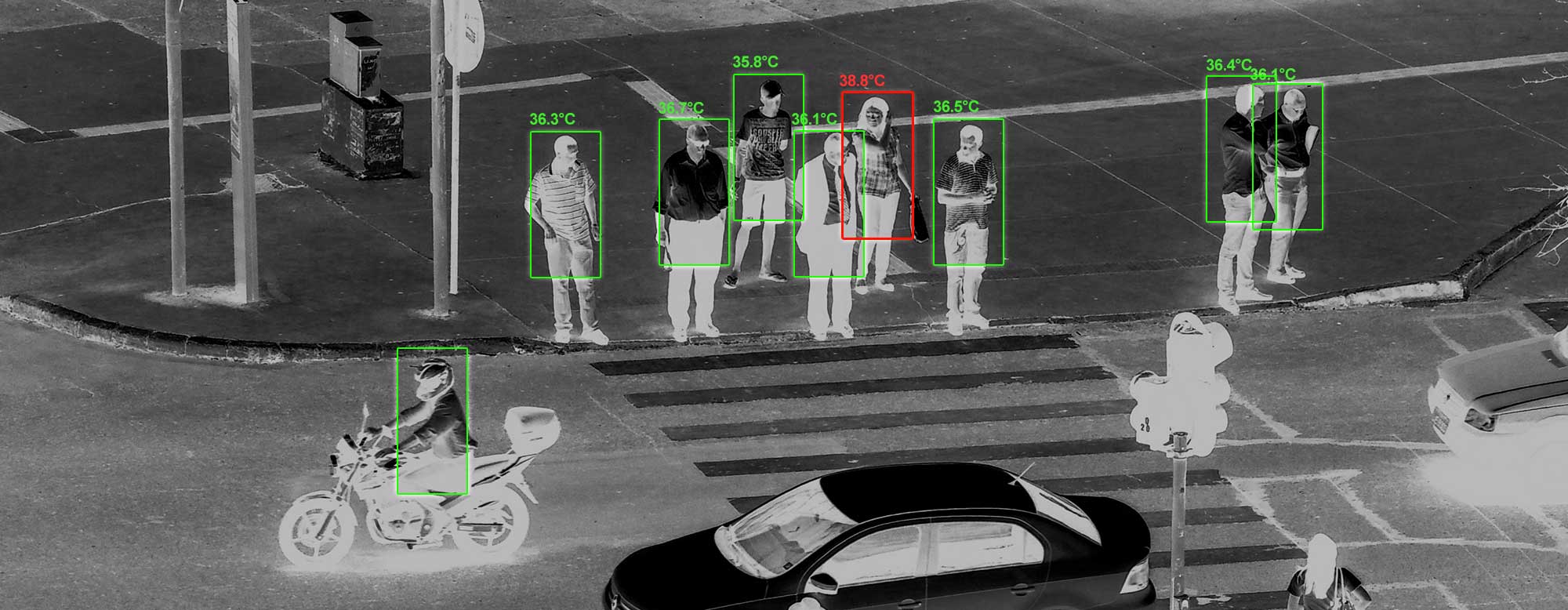The University of South Australia and the Canadian drone manufacturer Draganfly are teaming up to develop a pandemic drone that could be used to monitor people’s health and track down individuals displaying COVID-19 symptoms.
According to the ABC, the device uses thermal cameras and artificial intelligence to measure some of the indicators of coronavirus in groups of people, including heart rate, body temperature, coughing and sneezing.
Professor Javaan Chahl of UniSA told the ABC’s 7.30, the drone would be able to detect a cough from 15-20 metres away, while heart rate can be detected within 6-8 metres with only a very small margin of error.
“Heart rate can be measured in two different ways,” the professor said. “From a drone, we normally would measure it by a subtle change in skin tone that’s associated with each heartbeat.
“And it’s caused by changing the volume of blood in the skin. It also causes slight movement.”
The drone can also be used to monitor social distancing.
Professor Chahl acknowledged such surveillance systems carry a risk, warning it’s very hard to restrain its use once the genie is out of the bottle.
“I might think it’s a very bad idea to use drones to chase people around who might be sick. But perhaps others might have different ideas,” he said.
The idea of the authorities monitoring free individuals may seem harmless to those who say they have nothing to hide. Especially when it’s carried out in the name of public health and safety. Many Australians have already taken to social media in defence of the Australian government’s new coronavirus tracking app.
While those who’ve expressed caution about normalising state tracking have been told they have no basis to object if they use Facebook and iPhones and other platforms that monitor users. The problem with that argument is that Facebook and Apple don’t have the power to mandate the use of their platforms and products. They can’t demand we hand over our personal information or turn up at our homes with threats, fines, and guns if they don’t like something that we’ve done.
The government, on the other hand, has the ability to do all those things and then some. It doesn’t matter if it’s not their initial intention, or that they’ve promised to the contrary – not that a politician’s promise holds any weight.
All government tracking sets a dangerous precedent for the simple fact that we have no reason to believe the monitoring will go this far but no farther.
In fact, we have good reason to think it will become more intrusive over time, because government, almost by nature, has a tendency to increase in dominance, control and reach. The worrying thing is, many are willing to comply provided it’s promised to be carried out for our own safety.
In his essay, God in the Dock, Oxford Academic and author, C.S. Lewis said the most oppressive of all tyrants is the one who acts under the guise of benevolent care.
“Of all tyrannies, a tyranny exercised for the good of its victims may be the most oppressive. It may be better to live under robber barons than under omnipotent moral busybodies.
“The robber barons cruelty may sometimes sleep, his cupidity may at some point be satiated; but those who torment us for our own good will torment us without end, for they do so with the approval of their own conscience.”
Liberty comes with a risk. It always has. We should never let the authorities convince us that our freedom isn’t worth that risk.
As Benjamin Franklin said, “Any society that will give up essential freedom to obtain a little temporary safety deserve neither liberty nor safety.”





















